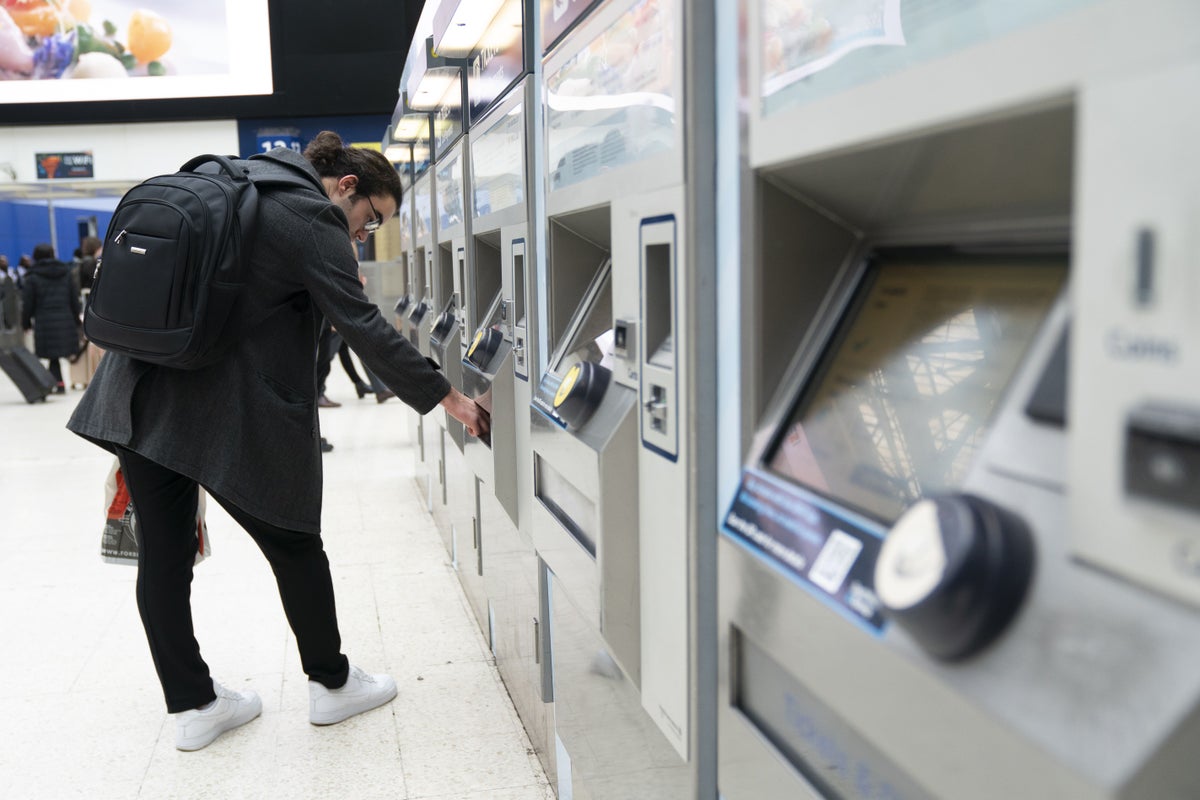
Regulated train fares in England may increase by 5.8% next year, despite punctuality in Britain at its lowest level since 2020.
The potential rise is based on the Office for National Statistics announcing that Retail Price Index (RPI) inflation rose to 4.8% in July.
The Government has not confirmed how it will determine the cap on regulated fare rises in 2026, but this year’s 4.6% hike was one percentage point above RPI in July 2024.
If that formula is used to set next year’s fare increase, the cost of train travel will jump by 5.8%.
That would mean an annual season ticket from Woking to London rising by £247 to £4,507.
A flexi ticket for travel two days per week over a year from Liverpool to Manchester would increase by £120.30 to £2,195.10.
Train punctuality in Britain is at its lowest level in more than five years.
Ben Plowden, chief executive of lobby group Campaign for Better Transport, said: “Today’s inflation figure could mean a big fare rise for rail passengers next year, especially if the Government decides to go with an above-inflation increase like we saw this year.
“With the railways now moving under public control, the fundamental question for the Government is how to use its role in setting fares policy to deliver a more affordable rail network and encourage more people to travel on it.
“Next year’s annual rise represents the first real opportunity for the Government to show passengers – both current and future – just how it plans to do this.”
About 45% of fares on Britain’s railways are regulated by the Westminster, Scottish and Welsh Governments.
They include season tickets on most commuter journeys, some off-peak return tickets on long-distance routes, and flexible tickets for travel around major cities.
Paul Kohler, the Liberal Democrats’ transport spokesman, said using the same formula again would be “nothing short of ludicrous”, adding: “Commuters are simply being taken for a ride.
“We simply cannot allow the current rate of inflation to set rail fares while services get worse.
“To increase rail fares at all in the midst of a cost-of-living crisis would be nothing other than a slap in the face to ordinary people.”
Mr Kohler urged the Government to scrap any plan for a rail fare rise to “get more people onto the trains”, while Conservative shadow transport secretary Richard Holden accused Labour of “turning a blind eye to fare dodging”.
He said: “Labour’s election promises ring hollow as passengers are hit with inflation-busting rises on top of cancelled trains, driver shortages and chaos across the network.
“These fare rises are a direct result of Labour’s disastrous economic mismanagement.”
The Department for Transport (DfT) said there will be an update on changes to regulated fares later this year.
Operators set rises in unregulated fares, although these are likely to be very close to regulated ticket increases because their decisions are heavily influenced by governments.
Office of Rail and Road figures show trains in Britain reached 66.7% of scheduled stops within a minute of the timetable in the year to July 19.
That is the worst performance since the year to May 30 2020.
Some operators are currently struggling with dry weather.
A lack of moisture in clay soil embankments has disturbed track levels, preventing trains from safely travelling at full speed in parts of south-west and south-east England.
A DfT spokesperson said: “The Transport Secretary has made clear her number one priority is getting the railways back to a place where people can rely on them.
“The Government is putting passengers at the heart of its plans for public ownership and Great British Railways (GBR), delivering the services they deserve and driving growth.
“No decisions have been made on next year’s rail fares but our aim is that prices balance affordability for both passengers and taxpayers.”
The Government is nationalising train operators as their contracts expire.
GBR is an upcoming public sector body that will oversee Britain’s rail infrastructure and train operation.
Government working on contingency plans after ruling on Epping migrant hotel
How many asylum seekers are in UK hotels and why are they being housed there?
Asylum hotel latest: More councils seek legal action to ban migrants
Warning Labour’s rewilding plans could trigger surge in UK wildfires
Why has inflation risen and what does it mean for households?







